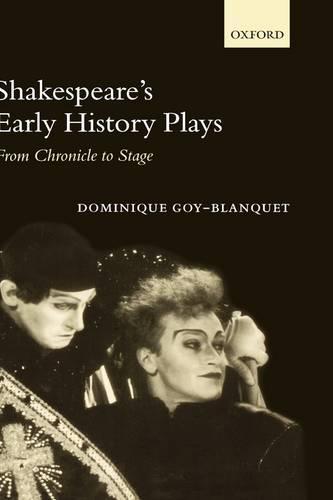Overview
Like many of his fellow playwrights, Shakespeare turned to national history for inspiration. In this study, Dominique Goy-Blanquet provides a close comparison of the Henry VI plays and Richard III with their historical and theatrical sources, demonstrating how Shakespeare was able to meet not only the ideological but also the technical problems of turning history into drama, how by cutting, carving, shaping, casting his unwieldy material into performable plays, he matured into the most influential dramatist and historian of his time. Recent criticism of Shakespeare's history plays has often consisted of fierce arguments over their ideological import and Shakespeare's position on the spectrum of current political opinions. This book, however, stems from the belief that a more constructive starting point for research is the exploration of the technical problems raised by turning heavy narratives into performable plays, rather than the political motives that could inpire a playwright's representation of national history. Illuminating and instructive, Shakespeare's Early History Plays includes not only close investigation of the verbal, poetic, and political texture of the plays, but also provides a broad overview of the wider sixteenth-century historiographical contexts of the plays, and their significance to Shakespeare's oeuvre more generally.
Full Product Details
Author: Dominique Goy-Blanquet (, Professor of Elizabethan Theatre, University of Picardie)
Publisher: Oxford University Press
Imprint: Oxford University Press
Dimensions:
Width: 16.10cm
, Height: 2.20cm
, Length: 24.20cm
Weight: 0.620kg
ISBN: 9780198119876
ISBN 10: 0198119879
Pages: 324
Publication Date: 11 September 2003
Audience:
Professional and scholarly
,
Professional & Vocational
Format: Hardback
Publisher's Status: Active
Availability: To order

Stock availability from the supplier is unknown. We will order it for you and ship this item to you once it is received by us.
Reviews
a thorough, perceptive, and instructive book The Shakespeare Newsletter ... a welcome study, full of information on the relationship between historical writing and history plays, military culture, honour and performance history ... many valuable insights that will make the book an essential reference tool for years to come, especially on the relationship between source-text and stage performance, and a valuable reading of the plays as a tragic cycle. Andrew Hadfield, Times Literary Supplement
a thorough, perceptive, and instructive book The Shakespeare Newsletter ... a welcome study, full of information on the relationship between historical writing and history plays, military culture, honour and performance history ... many valuable insights that will make the book an essential reference tool for years to come, especially on the relationship between source-text and stage performance, and a valuable reading of the plays as a tragic cycle. Andrew Hadfield, Times Literary Supplement
Author Information
Dominique Goy-Blanquet is Professor of Elizabethan Theatre at the University of Picardie. She is a leading French Shakespearean scholar and a regular contributor to the TLS and various French magazines.




